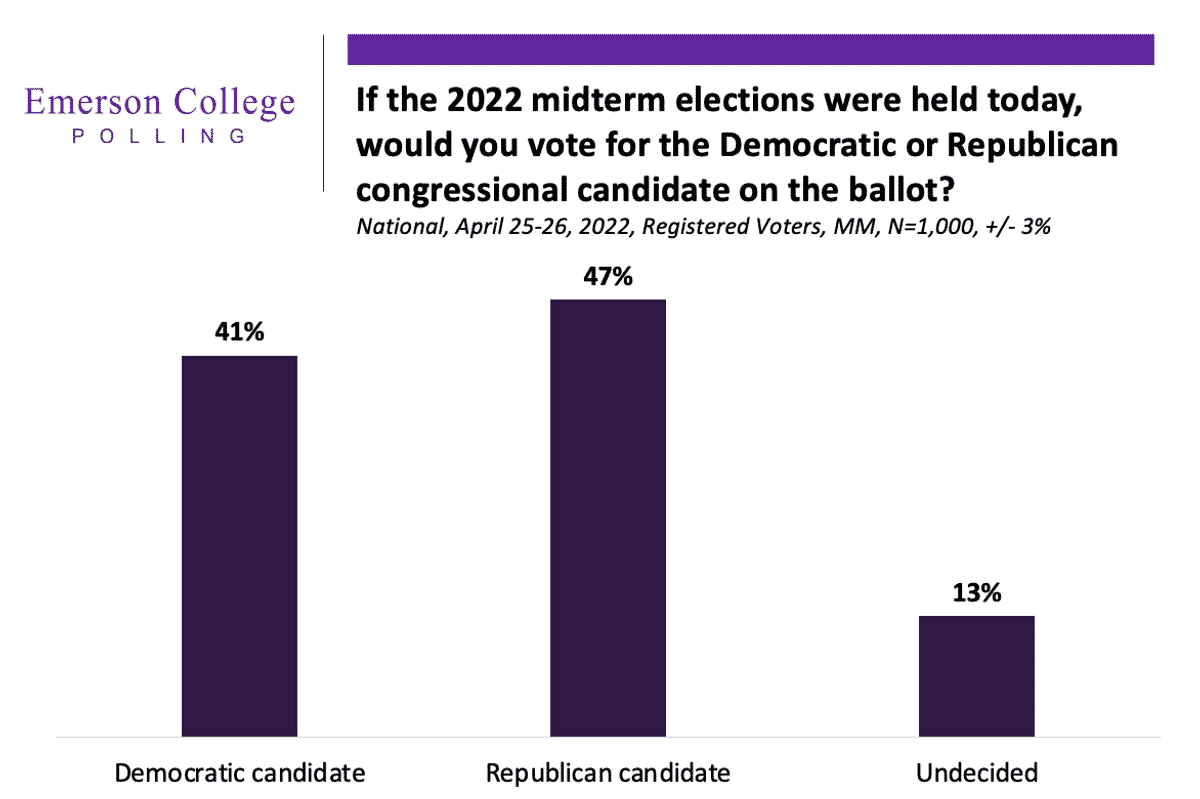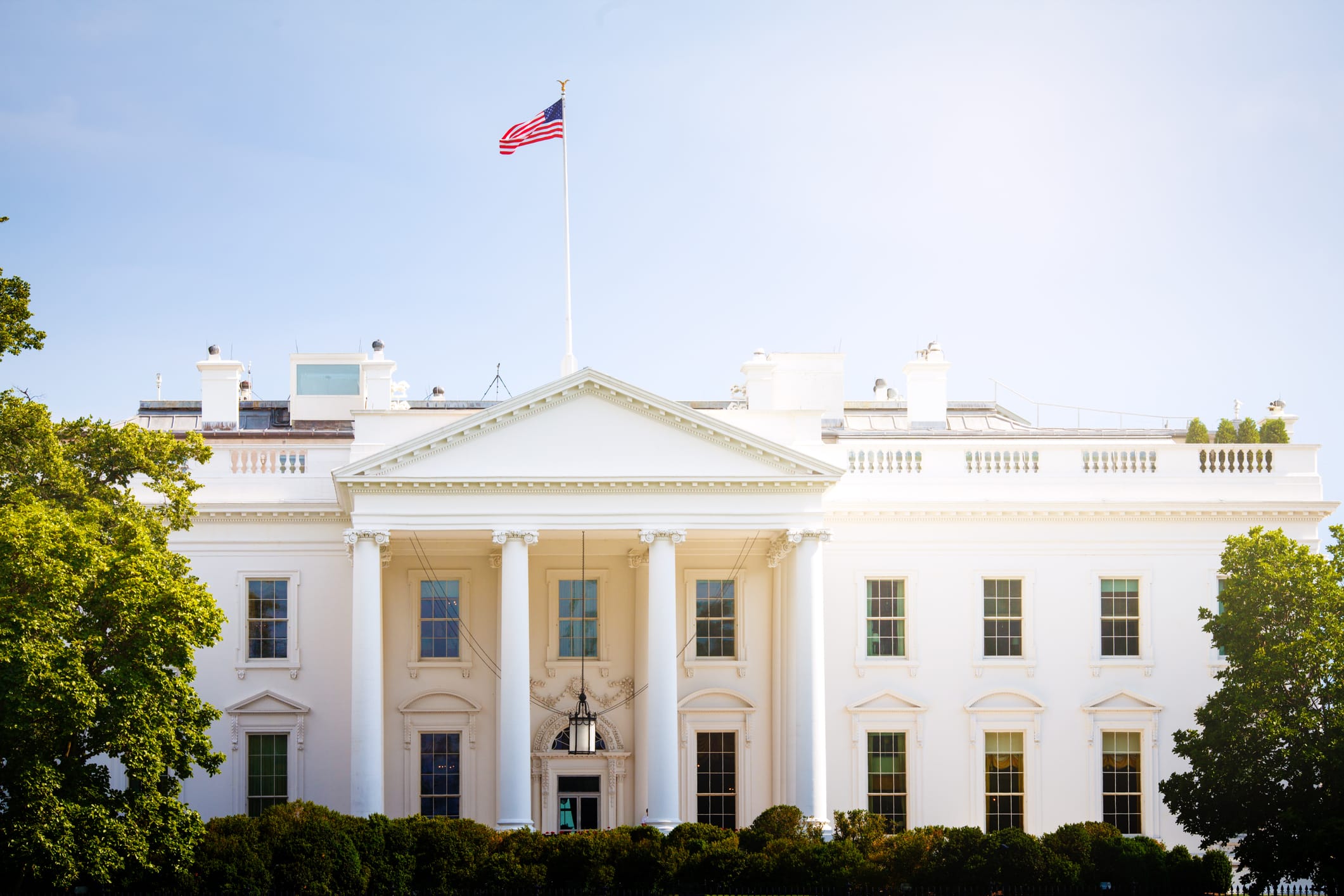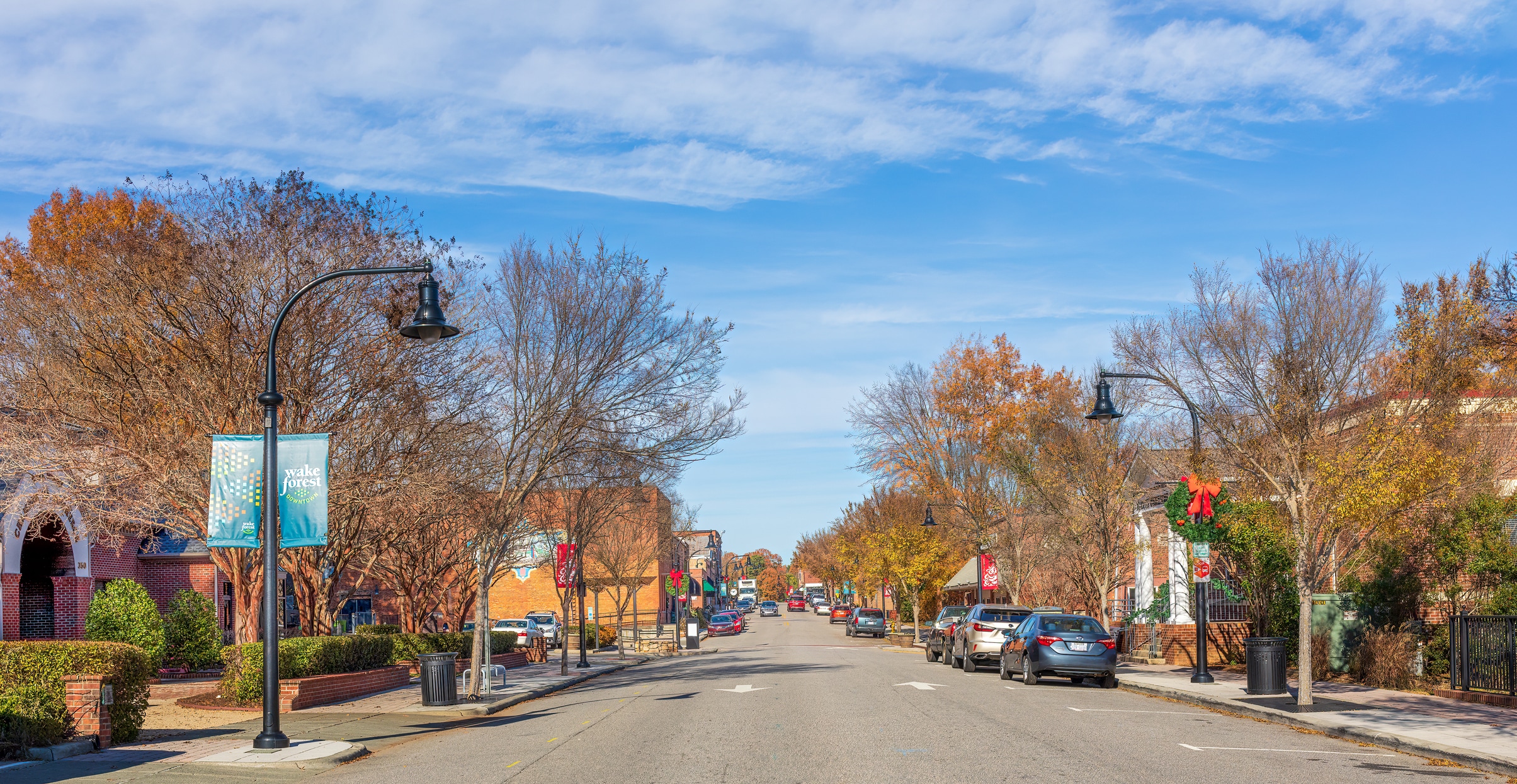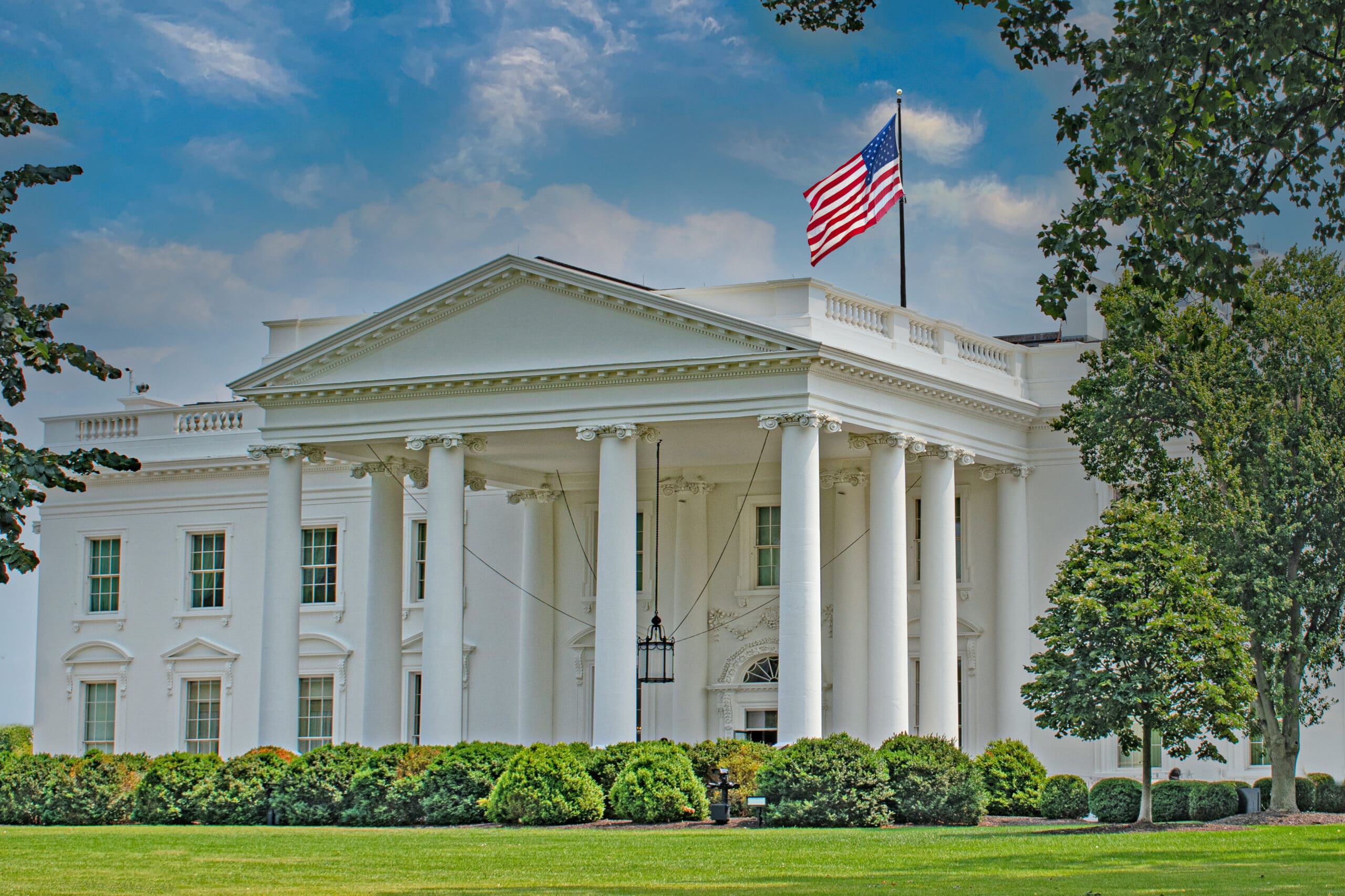Republicans Lead Generic Congressional Ballot
The April Emerson College national poll asked voters if they had ever taken a civic or government class while in middle or high school. Overall, 84% of respondents said they had taken one (22%) or multiple (62%) civics classes while 16% had taken no classes in civics or government. A significant difference was found between these two groups in how they trusted different institutions. For example, 37% of those who did not take a civics class believe their state runs fair elections compared with 62% of those who had taken a class.
On the question of what source is most credible: local news, cable news, or social media, a majority (58%) of those who did not take a civics class said none are credible, compared to 31% of those with a civics education who say none are credible.
President Joe Biden has a 42% job approval and 50% job disapproval. The president’s approval has remained relatively stagnant in 2022 Emerson College national polls, at 43% in March and 42% in February.
Spencer Kimball, Executive Director of Emerson College Polling noted, “President Biden continues to struggle with Hispanic voter approval, 35% approve of the job he’s doing while 60% disapprove. Similarly, he has a 34% approval with White voters,” Kimball continued, “this contrasts his 82% approval among Black voters.”
The economy is the most important issue facing the country for a plurality (40%) of respondents, followed by Covid-19 (13%), and healthcare (10%); no other issue cleared 10%.
“Nearly half, 49%, of Hispanic voters say the economy is the most important issue facing the country. This is the highest among all racial demographics; the economy is likely the driving force behind Hispanics 60% disapproval of the president,” Kimball said.
Looking ahead to the 2022 Midterm Elections, 47% of respondents say they would vote for the Republican congressional candidate on the ballot, while 41% would support the Democratic candidate; 13% are undecided.
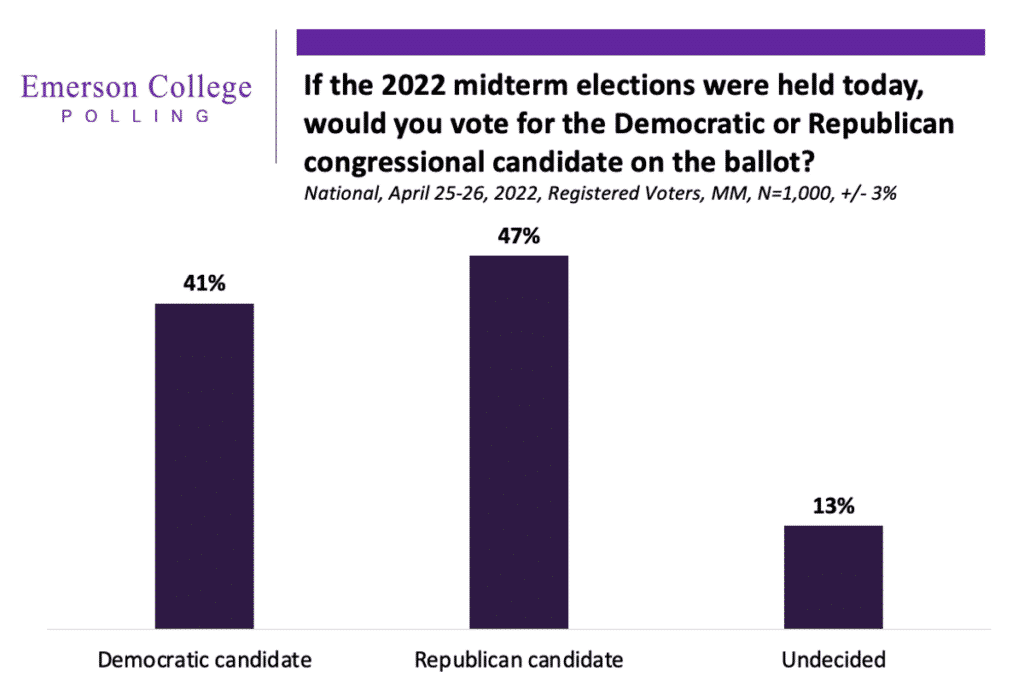
The April Emerson College national poll asked voters if they had ever taken a civic or government class while in middle or high school. Overall, 84% of respondents said they had taken one (22%) or multiple (62%) civics classes while 16% had taken no classes in civics or government. A significant difference was found between these two groups in how they trusted different institutions. For example, 37% of those who did not take a civics class believe their state runs fair elections compared with 62% of those who had taken a class.
On the question of what source is most credible: local news, cable news, or social media, a majority (58%) of those who did not take a civics class said none are credible, compared to 31% of those with a civics education who say none are credible.
President Joe Biden has a 42% job approval and 50% job disapproval. The president’s approval has remained relatively stagnant in 2022 Emerson College national polls, at 43% in March and 42% in February.
Spencer Kimball, Executive Director of Emerson College Polling noted, “President Biden continues to struggle with Hispanic voter approval, 35% approve of the job he’s doing while 60% disapprove. Similarly, he has a 34% approval with White voters,” Kimball continued, “this contrasts his 82% approval among Black voters.”
The economy is the most important issue facing the country for a plurality (40%) of respondents, followed by Covid-19 (13%), and healthcare (10%); no other issue cleared 10%.
“Nearly half, 49%, of Hispanic voters say the economy is the most important issue facing the country. This is the highest among all racial demographics; the economy is likely the driving force behind Hispanics 60% disapproval of the president,” Kimball said.
Looking ahead to the 2022 Midterm Elections, 47% of respondents say they would vote for the Republican congressional candidate on the ballot, while 41% would support the Democratic candidate; 13% are undecided.
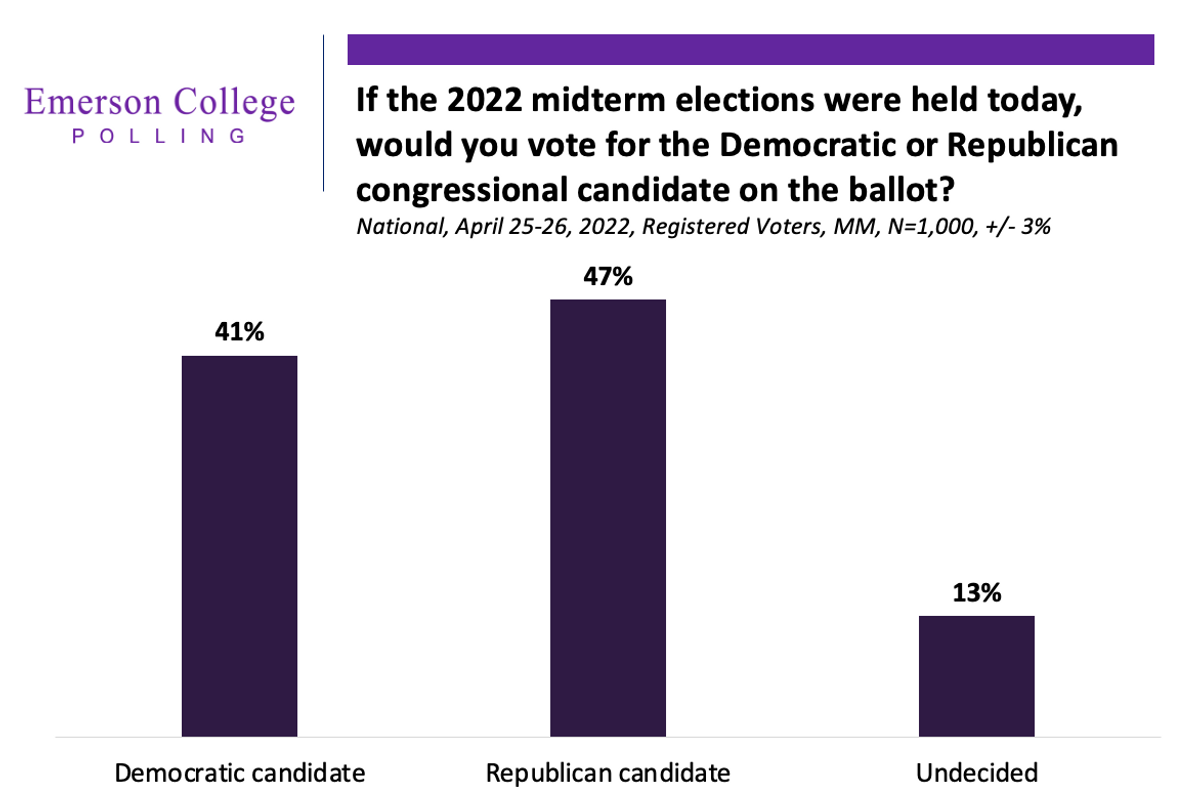
“A majority, 65%, of rural voters plan to support the Republican candidate for congress while a plurality, 48%, urban and city voters plan to support the Democratic candidate. However, suburban voters appear to be the battleground, the Democratic candidate and Republican candidate receive 41% respectively with 18% undecided,” Kimball said.
In a hypothetical 2024 presidential election matchup between President Joe Biden and former President Donald Trump, 43% of respondents say they would vote for Trump, 42% for Biden, and 13% say they would vote for someone else.
Overall, regarding credible sources for political information, 25% say they find cable news most credible, 23% say local news, while 15% say social media. A plurality (37%) find none most credible for political news.
“There are stark divides within respondents’ age and what source they find most credible for political news, older age groups were most likely to respond that none of the choices were credible sources for political news.” Kimball continued, “32% of those aged 18-29 find social media most credible, whereas 27% of those aged 30-49 find local news most credible. A majority, 53%, of those aged 50-64 and a plurality of those aged 65 and over say they find none of the options most credible for political news.”
Respondents were asked if they trust national media and local media to accurately cover politics and elections. A majority (51%) say they do not trust national media to accurately cover politics and elections, compared with 35% who do trust national media. Voters are split about trusting local media to accurately cover politics and elections at 41% trust and 40% do not.
When asked what social media platform they use the most for news, 40% say they do not use social media for news, while 14% say they use YouTube the most for news, 12% Twitter, 10% Facebook, and 8% Instagram. No other platform cleared 5%.
Caller ID
The Emerson College April national poll was conducted April 25-26, 2022. The sample consisted of registered voters in the United States, n=1,000 with a Credibility Interval (CI) similar to a poll’s margin of error (MOE) of +/- 3 percentage points. The data sets were weighted by age, education, race, and region based on 2020 turnout modeling. It is important to remember that subsets based on gender, age, party breakdown, ethnicity, and region carry with them higher margins of error, as the sample size is reduced. Data was collected using an online panel provided by Amazon MTurk, and an Interactive Voice Response (IVR) system of landlines.




